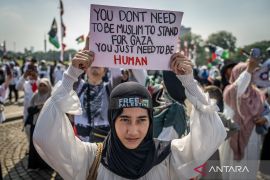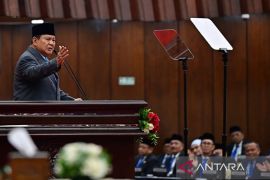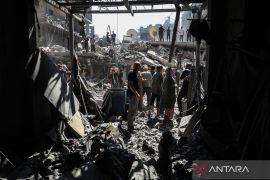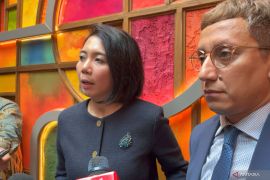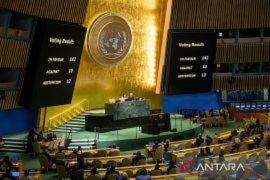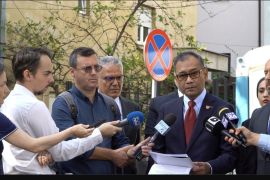Responding to the joint statement adopted by speakers of parliaments from G20 member countries in New Delhi on Saturday, she pointed out that while it addressed "the war in Ukraine", it did not equally significant global issues such as Palestine.
Maharani said that she, along with her counterparts from Turkiye, China, South Africa, and Russia, had signed a joint reservation, expressing hope that the Palestinian issue would also be accommodated in the statement.
The Joint Statement (Point 20) states "Concerning the war in Ukraine, while recalling the discussion in Bali, we reiterated our national positions and resolutions adopted at the UN Security Council and the UN General Assembly (A/RES/ES-11/1 and A/RES/ES-11/6) and underscored that all states must act in a manner consistent with the Purposes and Principles of the UN Charter in its entirety."
"In line with the UN Charter, all states must refrain from the threat or use of force to seek territorial acquisition against the territorial integrity and sovereignty or political independence of any state. The use or threat of use of nuclear weapons is inadmissible".
Maharani stated that the joint reservation was not aimed to dispute the Ukrainian issue. However, the absence of other crucial global issues, including the Palestinian one, created an imbalance in the joint statement.
In fact, the recent escalation in the Palestinian-Israeli war has killed and injured thousands of people on both sides. Therefore, the Palestinian issue also needs global attention, she emphasized.
At the Ninth G20 Parliamentary Speakers' Summit, Maharani was accompanied by Chairman of the DPR's Inter-Parliamentary Cooperation Agency (BKSAP) Fadli Zon, and Indonesian Ambassador to India Ina Krisnamurthi.
Two BKSAP members, Charles Honoris and Irine Yosiana Roba Putri, as well as DPR Secretary General Indra Iskandar also accompanied her at the event.
The new armed conflict erupted once again following a surprise attack by Hamas on Israel in the early morning of October 7.
Prior to the assaults by Palestinian liberation fighters, Israel continued its closure of Gaza crossings.
Palestine's news agency WAFA reported on September 25 that the Israeli closure of Gaza crossings had worsened the living conditions of Palestinians in Gaza.
According to WAFA, the Palestinians had already suffered from the severe impacts of "more than 17 years of tight Israeli land, sea, and air blockades."
Al Jazeera quoted Hamas, which governs Gaza, as stating that its assault on Israel was "a response to the desecration of the Al-Aqsa Mosque and increased settler violence."
In response to the unprecedented surprise attack, Prime Minister Benjamin Netanyahu had declared war on Hamas and, according to Al Jazeera, pledged that the Israeli forces would "turn all Hamas hideouts into rubble."
Since then, the Israeli occupation forces have continued to bombard Gaza. As a result, since the start of the war, at least 2,215 Palestinian civilians, including 724 children, have been killed, while Israel has lost 1,300 citizens.
Israel has also implemented a collective punishment in its efforts to crush Hamas in the Gaza Strip by cutting off supplies of food, water, fuel, and electricity to the besieged enclave, which is home to some 2.3 million people.
In the midst of the Israeli preparation for a wide range of military operations in Gaza, pro-Palestinian rallies have broken out around the world, calling for an immediate end to the ongoing killings of Palestinians.
Related news: 129 Indonesian nationals refuse to leave Palestine, Israel: ministry
Related news: Indonesia urges ICRC to support evacuation of Indonesians from Gaza
Translator: Melalusa SK, Rahmad Nasution
Editor: Anton Santoso
Copyright © ANTARA 2023

